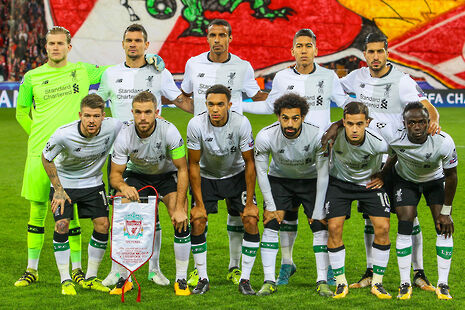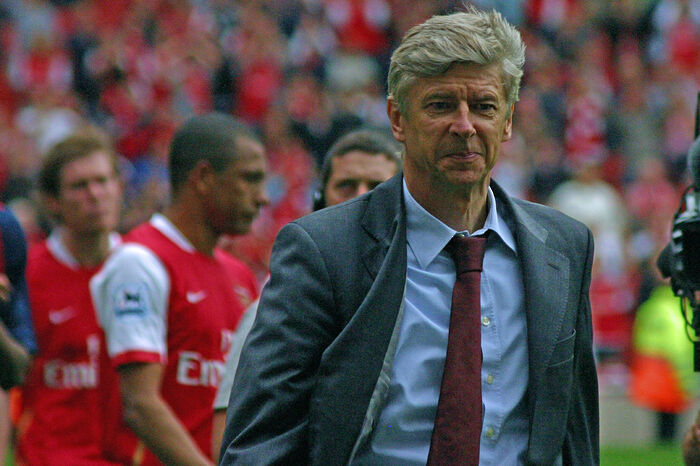A Tale of Two Seasons: Champions League triumph for Liverpool is only half the story
Despite Liverpool’s headline-grabbing feats in the Champions League this season, domestic inconsistency signals a need for further improvement

The past two weeks have provided Liverpool fans with a succinct encapsulation of their campaign as a whole. An uninhibited 5-2 bulldozing of Roma in the first-leg of their Champions League semi-final, only tainted by two Roma goals in the last ten minutes, was followed by anti-climax and a 0-0 draw against Stoke in one of the Reds’ greyest games this season. This was succeeded by a 4-2 defeat in Rome, which almost saw them snatch elimination from the jaws of victory, and a 1-0 defeat at the hands of Chelsea which, at the time, threatened their spot in next year’s Champions League.
A season which has seen a long-awaited return to the European spotlight, defeating the likes of Sevilla, Porto, Manchester City and Roma, and scoring more goals than any other team in the process, has also been yet another underwhelming disappointment domestically, only compounded by a fourth-round FA Cup defeat against West Bromwich Albion and a third-round EFL Cup defeat to Leicester City. Even as a world-class front three of Sadio Mané, Roberto Firmino and Ballon d’Or candidate Mohamed Salah banged in more Champions League goals than any other forward line in history – with a combined 29 goals eclipsing the frightening triumvirates of both Messi, Suarez, Neymar on 27 goals and Ronaldo, Benzema, Bale on 28 goals in recent years – their backline has been marred by a series of catastrophic defensive errors. This, along with the hot-and-cold performances of their midfield, has led to numerous dropped points against the Premier League’s smaller fish.
A win for Liverpool on the 26th of May would be an historic achievement, but realistically it would only be papering over the cracks
On first inspection, this would seem to suggest a strikingly bipolar season, characterised either by overperformance in the Champions League or underperformance domestically; however, closer analysis of their season yields more nuanced conclusions. In fact, Liverpool have achieved similar win-percentages in Europe and in England (58% in the Champions League and 54% in the Premier League), almost identical goals conceded (1.1 and 1.02 respectively), and only a slight difference in goals scored (3 and 2.2 respectively). They have, however, benefited from a Champions League format which does not require as much consistency; wildly differing results between home and away legs, as seen in games such as Real Madrid’s 4-3 victory over Juventus and Roma’s 4-4 away-goals triumph over Barcelona to name but a few, have made this year’s competition excitingly unpredictable. Thus, a defensively-frail team like Liverpool has been able to rely on their offensive prowess and streaks such as the 3-0 win against City or the 5-2 against Roma to give them enough of a head-start to carry them through a two-game knock-out stage. In a competition with 38 isolated games, on the other hand, they have struggled for stamina.
Parallels with Liverpool’s upcoming opponents Real Madrid are hard to miss: in a year in which the Spanish giant’s form has been as patchy as Liverpool’s, a knock-out competition in which rounds last no more than two games has proven the only chance to salvage an otherwise dismal season. Having said that, a win for Liverpool on the 26th of May would be an historic achievement, but realistically it would only be papering over the cracks; it is impossible to escape the fact that this season has been good but not excellent, with a lower percentage of wins than Bayern, PSG, City, Juventus, Barcelona, Atlético or Napoli. As Zidane himself has pointed out throughout the season, it is a team’s league performance which provides the greatest challenge and determines genuine success. Certainly, the foundations have been laid, but Jurgen Klopp will be aware that a team which aspires to be one of the best in Europe cannot rely on one single player – or even three.
Klopp’s aim this summer, therefore, should be to create a more compact team with the means to compete week in, week out, one with a solid enough defense and midfield to relieve the burden on Salah, Firmino and Mané and reduce the number of complacent upsets. Incoming Naby Keita will be an excellent addition, providing both defensive work-rate and explosive forward-impetus to the midfield. An old hand like Diego Godin, although by no means a long-term investment, would provide the Reds’ defence with a level of experience that it currently lacks, and could be complemented by the possible loan-acquisition of Yerry Mina. Young players in the mould of Adrian Rabiot and Allesandro Florenzi would also both fit seamlessly into the Klopp system. Pipe dreams perhaps, but for a team who took the risk and signed Virgil van Dijk for £75m and are now reaping the benefits, not beyond the realms of possibility.
19 years without a Premier League title is surely too long for a team which wishes to measure itself against the continent’s greatest. But, provided Liverpool’s offense can maintain this year’s lofty heights and key positions are strengthened over the summer, next season could finally be the one in which Klopp’s Liverpool challenges City’s Premier League tyranny. In the meantime, and no less importantly, looms Kiev – which could be the first step on Liverpool’s march to European glory.
 News / Eight Cambridge researchers awarded €17m in ERC research grants27 December 2025
News / Eight Cambridge researchers awarded €17m in ERC research grants27 December 2025 News / Clare Hall spent over £500k opposing busway 24 December 2025
News / Clare Hall spent over £500k opposing busway 24 December 2025 Comment / League tables do more harm than good26 December 2025
Comment / League tables do more harm than good26 December 2025 News / Caius mourns its tree-mendous loss23 December 2025
News / Caius mourns its tree-mendous loss23 December 2025 Comment / The ‘class’ of Cambridge24 December 2025
Comment / The ‘class’ of Cambridge24 December 2025










